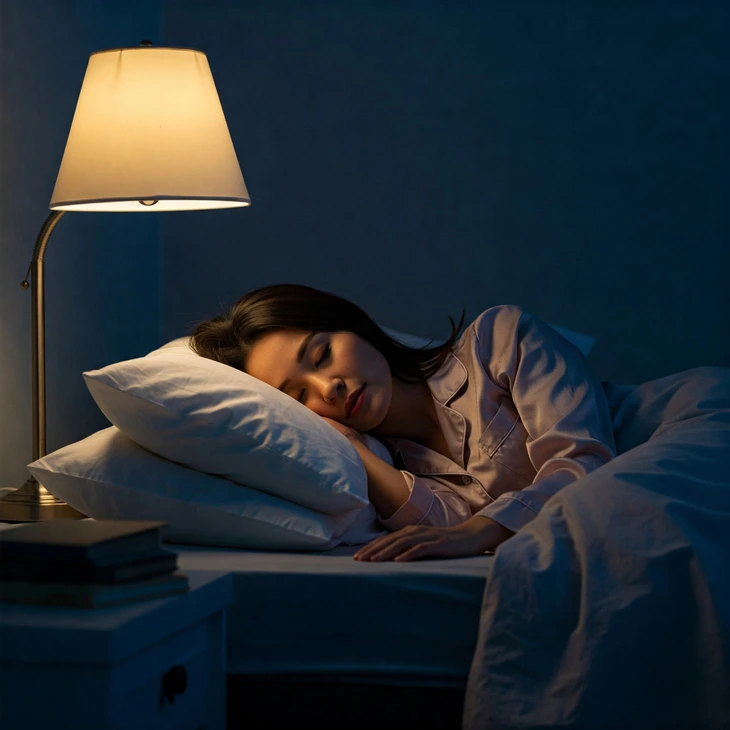Going to bed late can affect the quality of deep sleep - Image generated by AI
According to American neurologist and sleep expert Christopher Winter, a habit of going to bed late is not necessarily a serious problem. However, it can be a sign that your sleep cycle is having problems.
What does science say about going to bed after midnight?
According to Yahoo Life, there is no general rule that adults should go to bed at a fixed time, but many recommendations say that you should go to bed before midnight. The reason is because going to bed late can affect the quality of deep sleep, as well as many other health risks.
A study published in JAMA Network Open analyzed data from nearly 1,200 people and found that those who regularly slept after midnight had greater fluctuations in blood sugar levels.
The study authors note that this is a risk factor for chronic disease and premature death, so they began to wonder whether sleeping after midnight increases the risk of serious health problems.
Staying up late can also affect your mental health. A 2024 study published in the journal Psychiatric Research found that people who went to bed after 1 a.m. were at higher risk of depression and anxiety disorders, regardless of whether they were morning or evening people.
Several previous studies have also linked late bedtimes to shorter lifespans and a higher risk of health problems such as diabetes and mental disorders.
What happens to your body if you sleep after midnight?
If you regularly fall asleep after midnight but don't need to wake up early the next morning, then bedtime may not be an issue.
According to sleep expert Jade Wu, author of Hello Sleep: The Science and Art of Overcoming Insomnia Without Medications, the midnight hour is nothing special.
However, Wu says going to bed late affects many other factors, such as your chronotype, when you wake up, how much sleep you need, what you do during the day and night, and the consistency of your sleep schedule.
According to Dr. Beth Malow, director of Sleep Medicine at Vanderbilt University Medical Center (USA), the human circadian rhythm is often geared towards sleeping before midnight.
Going to bed late can also disrupt deep sleep. Dr. Winter explains that deep sleep occurs mainly in the first hour or two after falling asleep, which usually occurs between 10 p.m. and midnight. If you go to bed after midnight, you may miss out on much of this deep sleep.
This stage of sleep is when growth hormone and other important chemicals are released. Lack of deep sleep can increase levels of the stress hormone cortisol, which can affect your blood sugar and mood.
Read moreBack to Topic Page
DAWN
Source: https://tuoitre.vn/di-ngu-sau-nua-dem-anh-huong-suc-khoe-ra-sao-20250401182213402.htm




































































































Comment (0)